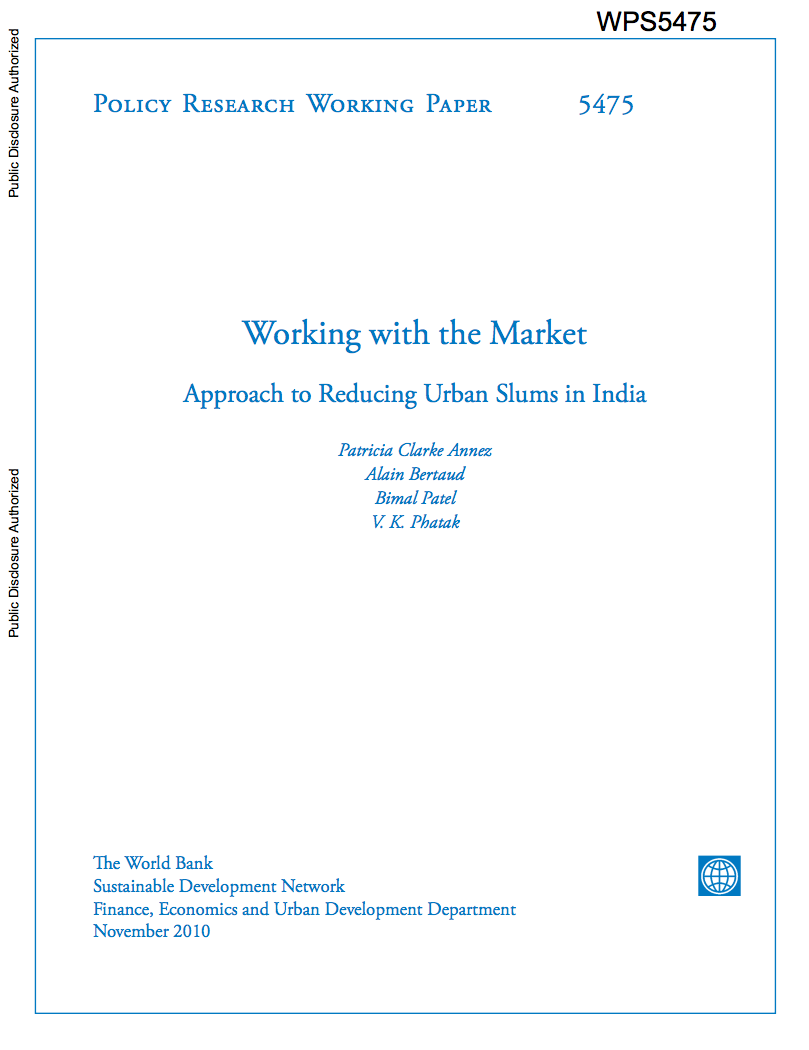Urbanization and Property Rights
Since the industrial revolution, the
economic development of Western Europe and North America was
characterized by continuous urbanization accompanied by a
gradual phasing-in of urban land property rights over time.
Today, however, the evidence in many fast urbanizing
low-income countries points towards a different trend of
“urbanization without formalization”, with potentially
adverse effects on long-term economic growth. This paper


